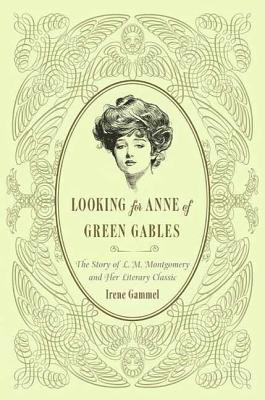In June 1908, a red-haired orphan appeared on to the streets of Boston and a modern legend was born. That little girl was Anne Shirley, better known as Anne of Green Gables, and her first appearance was in a book that has sold more than 50 million copies worldwide and been translated into more than 35 languages (including Braille). The author who created her was Lucy Maud Montgomery, a writer who revealed very little of herself and her method of crafting a story. On the centenary of its publication, Irene Gammel tells the braided story of both Anne and Maud and, in so doing, shows how a literary classic was born. Montgomery's own life began in the rural Cavendish family farmhouse on Prince Edward Island, the place that became the inspiration for Green Gables. Mailmen brought the world to the farmhouse's kitchen door in the form of American mass market periodicals sparking the young Maud's imagination. From the vantage point of her small world, Montgomery pored over these magazines, gleaning bits of information about how to dress, how to behave and how a proper young lady should grow. She began to write, learning how to craft marketable stories from the magazines' popular fiction; at the same time the fashion photos inspired her visual imagination. One photo that especially intrigued her was that of a young woman named Evelyn Nesbit, the model for painters and photographers and lover of Stanford White. That photo was the spark for what became Anne Shirley. Blending biography with cultural history, Looking for Anne of Green Gables is a gold mine for fans of the novels and answers a trunk load of questions: Where did Anne get the "e" at the end of her name? How did Montgomery decide to give her red hair? How did Montgomery's courtship and marriage to Reverend Ewan Macdonald affect the story? Irene Gammel's dual biography of Anne Shirley and the woman who created her will delight the millions who have loved the red haired orphan ever since she took her first step inside the gate of Green Gables farm in Avonlea.

In June 1908, a red-haired orphan appeared on to the streets of Boston and a modern legend was born. That little girl was Anne Shirley, better known as Anne of Green Gables, and her first appearance was in a book that has sold more than 50 million copies worldwide and been translated into more than 35 languages (including Braille). The author who created her was Lucy Maud Montgomery, a writer who revealed very little of herself and her method of crafting a story. On the centenary of its publication, Irene Gammel tells the braided story of both Anne and Maud and, in so doing, shows how a literary classic was born. Montgomery's own life began in the rural Cavendish family farmhouse on Prince Edward Island, the place that became the inspiration for Green Gables. Mailmen brought the world to the farmhouse's kitchen door in the form of American mass market periodicals sparking the young Maud's imagination. From the vantage point of her small world, Montgomery pored over these magazines, gleaning bits of information about how to dress, how to behave and how a proper young lady should grow. She began to write, learning how to craft marketable stories from the magazines' popular fiction; at the same time the fashion photos inspired her visual imagination. One photo that especially intrigued her was that of a young woman named Evelyn Nesbit, the model for painters and photographers and lover of Stanford White. That photo was the spark for what became Anne Shirley. Blending biography with cultural history, Looking for Anne of Green Gables is a gold mine for fans of the novels and answers a trunk load of questions: Where did Anne get the "e" at the end of her name? How did Montgomery decide to give her red hair? How did Montgomery's courtship and marriage to Reverend Ewan Macdonald affect the story? Irene Gammel's dual biography of Anne Shirley and the woman who created her will delight the millions who have loved the red haired orphan ever since she took her first step inside the gate of Green Gables farm in Avonlea.